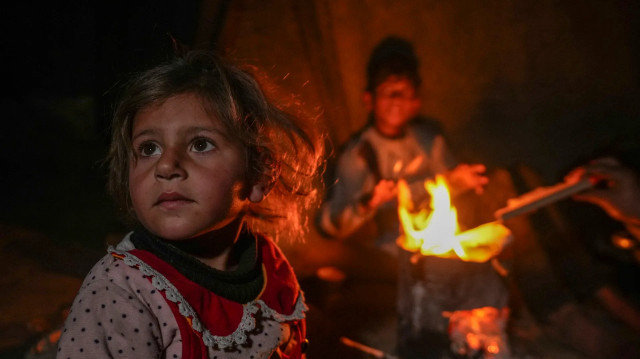
UN Children's Fund report warns over increasing threat to children's lives, rights, and well-being
A new UNICEF report on Monday said that more than 473 million children lived in conflict-affected areas in 2023 and that the number likely rose in 2024.
"Children's lives, rights and well-being are increasingly under threat in conflict. Over 473 million children – more than one in six globally – lived in areas affected by conflict in 2023, a number that is likely to have risen in 2024," said the report, which included predictions about the challenges that will affect children in 2025.
Saying that the percentage of children impacted has nearly doubled since the 1990s, now reaching 19%, the report urged measures to "rethink and strengthen systems" to preserve children's rights and well-being.
"Children under five years of age bear 88% of the global disease burden associated with climate change," UNICEF said, adding that rising temperatures pose a significant threat.
Highlighting the economic difficulties that further jeopardize children's futures, the report said: "Over 40 low-income countries globally spend twice as much on debt servicing as on health, including some countries with very large child populations."
UNICEF further stressed attention to the transformative potential of technology, saying: “Digital public infrastructure (DPI) can fundamentally shift how governments engage with citizens."
"DPI can play a crucial role in advancing children's well-being by ensuring equitable access to essential services such as education, health care and social protection," it said.
The report also noted the need for systemic approaches that build resilience in disaster preparedness, education, and health care to safeguard children's futures.
"In 2025, nations and institutions must address the critical question of whether the global multilateral framework will unify to form a cohesive response to our shared challenges or fragment further, risking a loss of collective action. Progress for children requires stronger alignment between global and national priorities," it stated.

